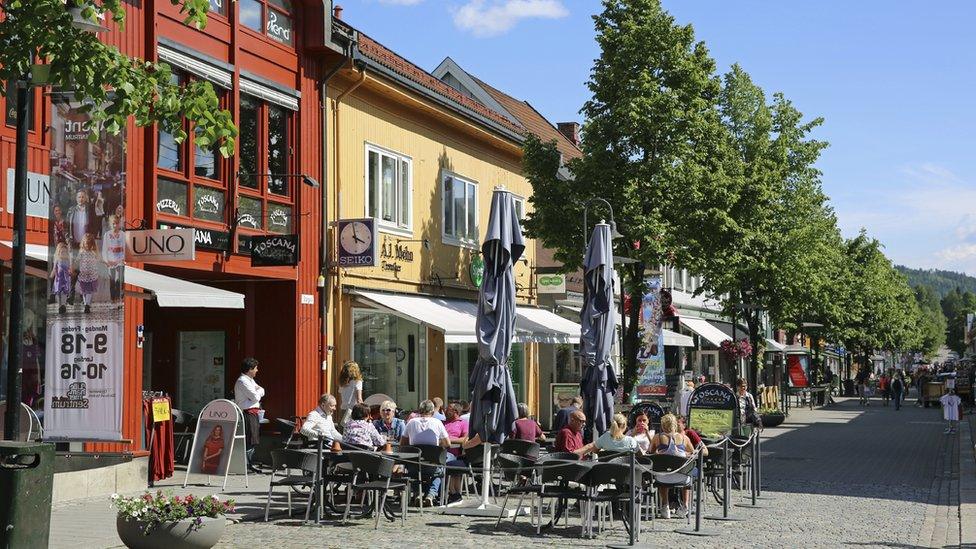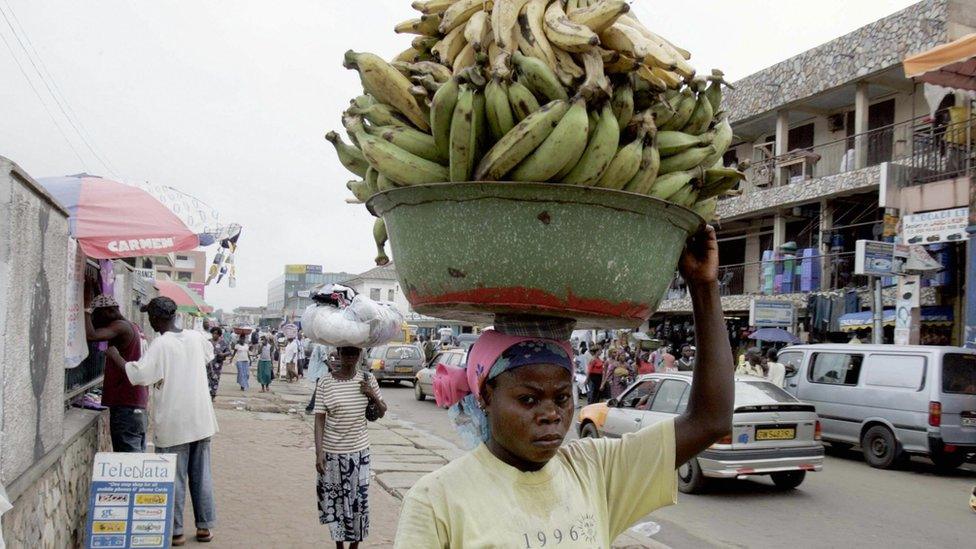Letter from Africa: What can Ghana learn from Norway?
- Published

In our series of letters from African journalists, Ghanaian writer Elizabeth Ohene considers what her country can learn from Norway.
My visit to the Norwegian city of Lillehammer a few weeks ago reaffirmed my conviction that the Scandinavians really are a class act.
Those who follow these things would remember that Lillehammer was the host city for the 1994 Winter Olympics.
I remember the images of a pretty town on television but then I know that the camera can portray my home city Accra as a pretty town when I know the reality to be somewhat different.
You can take it from me that Lillehammer is as picturesque and pretty as anything you have seen on television.
It is a small town of about 26,000 people and the first thing I wondered when I arrived at the train station was how they had managed to host the Winter Olympics.

Lillehammer hosts major winter sport events
But I was soon to discover that organising big numbers in small places comes to them easily.
Indeed, as I looked on in amazement at the smooth running of the conference I was attending, I wondered about what lessons to take back with me.
And the more I looked on, it occurred to me, it was the might-have-been that was the most important.
Touchy subject
I have written on other occasions about the unmanaged population growth of Ghana.
I have drawn attention to the fact that at Ghana's independence in 1957, we had a population about the same as Norway.

Like many African countries, Ghana has witnessed a population boom in recent years
However, 58 years later, Norway still has a population of just over five million people and Ghana has almost 28 million people, according to the latest figures from the statistics department.
I know this is not a popular subject in Ghana and every time I have tried to raise it, I have been met with hostility from many quarters.
But I still think that there must be a lesson somewhere we can learn in having a manageable-sized population.

Elizabeth Ohene:

"It seems to me we are looking to the Norwegians for the wrong lessons"

If Norway had been growing at the same rate of population as we have been doing and they were also now about 28 million people, the country would not be as wealthy as it is today.
Even if they were increasing at half our rate of population growth, they would still not have the disposable income that they have today.
I acknowledge that it is not only in the rate of population growth that the Norwegians are different from us; but the orderliness and cleanliness that one finds in Norway must have something to do with there not being too much pressure on facilities.

More on Africa's population:


And then there is the critical problem of the proper and judicious use of public funds, for which the Norwegians are famous.
This is the country that has shamed the rest of the world by investing huge portions of its oil revenue for what it terms, "generations yet unborn", in acknowledgement of the fact that the oil will be finished one day.
Indeed, when we discovered oil in Ghana, Norway was the country we turned to for advice on the management of the revenue and our members of parliament have made endless journeys to learn how to use our oil revenue properly.

Late President John Atta Mills turned on a valve to start pumping Ghana's oil in 2010
It seems to me we are looking to the Norwegians for the wrong lessons.
Before Norway discovered oil, they had already finished with their basic infrastructure of roads, railways, ports, schools, hospitals and homes, etc.
Here we are in 2015 and we are nowhere near even agreeing on where to start.
What is more, we think we should be increasing our numbers.
If there is any lesson to learn, it should be in managing the size of our population.
Now that Ghana's own Cardinal Peter Turkson has recently spoken out about population growth and the impacts of climate change, and mentioned "birth control", maybe there will now be a conversation on population in Ghana.
But the chances of there being a small-sized, well-managed, pretty little town like Lillehammer in Ghana does not seem likely in my lifetime.

